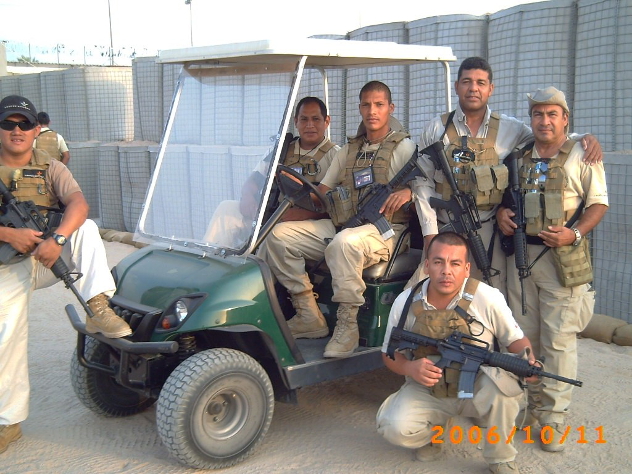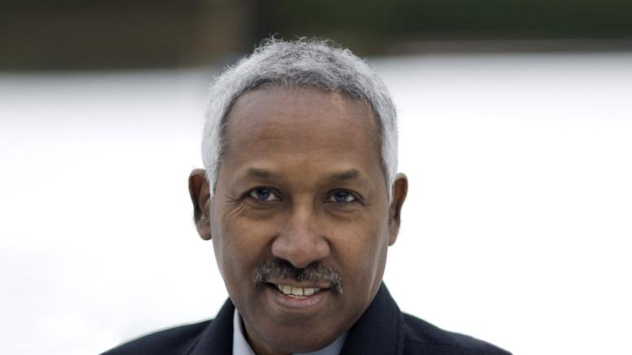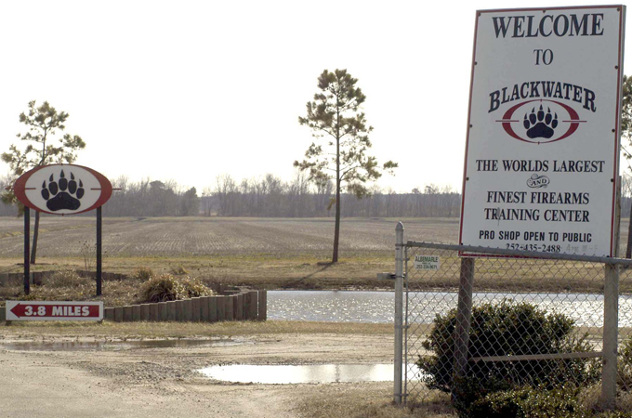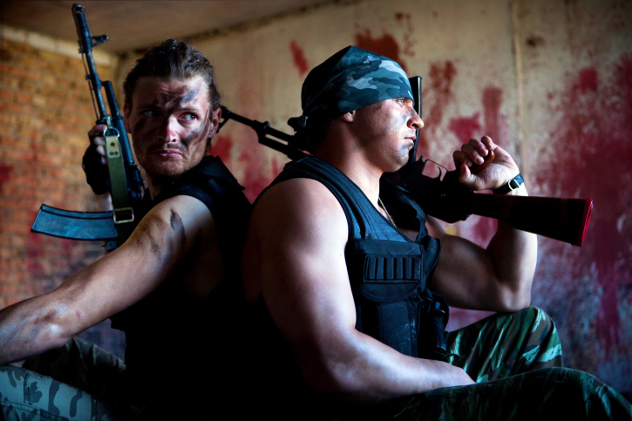 Weird Stuff
Weird Stuff  Weird Stuff
Weird Stuff  Miscellaneous
Miscellaneous 10 LEGO Facts That Will Toy with Your Mind
 Misconceptions
Misconceptions 10 Widespread Historical Myths and the Texts That Started Them
 Crime
Crime 10 Incredible Big-Time Art Fraudsters
 Movies and TV
Movies and TV 10 Most Influential Fictional Objects in Cinema History
 Our World
Our World Top 10 Real Almost‑Cities That Never Materialized
 Technology
Technology 10 Unsettling Ways Big Brother Is (Likely) Spying on You
 Music
Music 10 Chance Encounters That Formed Legendary Bands
 Space
Space 10 Asteroids That Sneaked Closer Than Our Satellites
 Sport
Sport The 10 Least Credible Superstars in Professional Sports
 Weird Stuff
Weird Stuff 10 of History’s Greatest Pranks & Hoaxes
 Miscellaneous
Miscellaneous 10 LEGO Facts That Will Toy with Your Mind
 Misconceptions
Misconceptions 10 Widespread Historical Myths and the Texts That Started Them
Who's Behind Listverse?

Jamie Frater
Head Editor
Jamie founded Listverse due to an insatiable desire to share fascinating, obscure, and bizarre facts. He has been a guest speaker on numerous national radio and television stations and is a five time published author.
More About Us Crime
Crime 10 Incredible Big-Time Art Fraudsters
 Movies and TV
Movies and TV 10 Most Influential Fictional Objects in Cinema History
 Our World
Our World Top 10 Real Almost‑Cities That Never Materialized
 Technology
Technology 10 Unsettling Ways Big Brother Is (Likely) Spying on You
 Music
Music 10 Chance Encounters That Formed Legendary Bands
 Space
Space 10 Asteroids That Sneaked Closer Than Our Satellites
 Sport
Sport The 10 Least Credible Superstars in Professional Sports
10 Frightening Facts About Private Military Companies
Private military companies are essentially armies that are controlled by no one but their shareholders and whoever pays them the most. They’re not about to go anywhere, either—on the contrary, as capitalism marches on, there are more and more of these private armies running around the globe.
Let’s take a look at what they do.
10 Discount Soldiers

The thing about private military companies is that (like any other company) they can come from literally anywhere. Defion Internacional, for instance, hails from Peru, South America. This may not seem like the most obvious place for a frightening private army—that is, until you realize that Peru suffered a 20-year internal conflict that ended as recently as 2000 and is still trying to pick up the pieces.
The country is full of men who grew up in a state of constant conflict, and are now struggling to support their families in a poor economy. As such, Defion Internacional has been able to hire their personnel with as little as US$1000 per month. Of course, these men think it is a fairly good salary for them, as typical monthly wages in Peru (if they manage to get work) is only around $200 a month.
Defion Internacional specializes in dangerous security assignments in the Middle East, but also has other lines of business such as food and medical services, English teaching, and (most frighteningly) insurance. The company has been given missions in Iraq by the US Department of State, meaning that these underpaid Peruvians have actually worked with the US Military. They have also worked for a larger US private military company called Triple Canopy Inc., although these days the latter prefers to do their own hiring in Peru. Hey, speaking of Triple Canopy . . .
9 A Private Army Guards US Officials Abroad

Triple Canopy, like Defion Internacional, is known to employ discount South American soldiers. However, that’s just a small fraction of their business. Founded by ex-members of the US Army Special Forces, Triple Canopy is a mercenary force that works mainly for the US government in Iraq. Their employees include former Navy SEALs, Rangers, Special Operations personnel and police officers.
Although it specializes in security and escort operations, Triple Canopy has been responsible for some of the toughest missions a mercenary company can undertake. After Saddam Hussein’s fall, the company found employment in Iraq, guarding and escorting US officials and performing other high-risk duties. As a company that works closely with the military, some have dubbed them the “other army” of the United States.
8 Rise Of The German Mercenaries

For years, Germans (who for obvious reasons have tried to lead a conflict-free life since World War II) scoffed at the American private militaries that were causing trouble all over the world’s conflict zones. In 2007, they received some troubling news of their own: A former German officer called Thomas Kaltegärtner had founded a mercenary company of his own.
Kaltegärtner’s company, Asgaard German, then went on to cause further gray hairs to German politicians by signing a deal to provide security services for Galadid Abdinur Ahmad Darman, the President of Somalia. Apparently, their mission is no less than restoring security in the war-ravaged area.
This may not sound like such a bad thing, except for one thing: Darman happens to be a self-appointed president—one of many Somali warlords who’ve claimed that title and refuse to recognize the authority of the official, United Nations-appointed transition government of the country. One can only imagine what “security services” for such a person might entail, and how he is planning to “restore peace in the area.”
And now he has a bunch of highly trained German soldiers to help him.
7 Image Issues

These days, private military companies are very keen on maintaining a positive, professional reputation. After all, the Information Age has made sure that every single gaffe companies make eventually finds its way to the eyes of the world. A prime example of this new, shiny veneer is Sandline International, the now-defunct British company closely associated with Aegis Defence, whose mercenaries saw action in war-torn Sierra Leone and Papua New Guinea, among other places.
Sandline had an advisor and public spokesman called Michael Grunberg, who smilingly fed the media the same kind of corporate buzzword talk that a tech company CEO might sprout: According to Grunberg, his company and its horde of privately paid soldiers are “established entities, have established sets of principles and employ professional people.” Sandline also handled bad publicity just as awkwardly as any other company: For instance, when a book that criticized the company came out (Mercenaries: An African Security Dilemma) they responded by publishing a massive list of flaws in the writing, nitpicking the book’s details to death without really responding to any of the more serious accusations.
6 Academi

Academi is probably the most harmless-sounding name on this list, but don’t be fooled: The company is actually none other than the infamous Blackwater. The company’s history of atrocities runs so far and deep that there are entire websites solely dedicated to listing their various shady activities: For a while, they were even involved in a CIA death squad.”
The name “Academi,” which has been in use since 2011, marks the second time the company has attempted to whitewash its name in five years. It’s first name change was to “XE Services,” which lasted only two years, until yet another “corporate restructuring” took place. So far, this strategy seems to work for them, as their new name is yet to be too tarnished. Then again, judging by the fact that they have already been forced to admit to at least 17 federal criminal charges and pay millions of dollars in fines, it seems like it’s just a matter of time before they have to come up with an even less threatening name. Though with their reputation at this point, there probably is no name that could soften their public image.
5 Executive Outcomes

In the other end of the sliding scale of terrifying private militaries, we have Executive Outcomes, known to their friends as EO (if they have any). This South African company has been sighted in most African war zones, where it is said to hold high influence. Executive Outcomes mercenaries have been seen in Sierra Leone, Angola, Uganda, Botswana, Zambia, Ethiopia, Namibia, Lesotho and, of course, South Africa. Although they officially state their only mission is bringing peace, they have been suspected of several shady activities ranging from Sierra Leone-based oil company shenanigans to diamond dealings with the jewel giant De Beers.
The company is notorious for targeting the client country’s mineral-rich regions, often regaining and securing control of gold, oil and diamond regions before paying attention to other matters. Some whisper they don’t always get around to returning these possessions to the country. Executive Outcomes is said to own gold mines in Uganda, oil drilling facilities in Ethiopia and a variety of other peacetime business ventures in the other countries it has fought for.
4 The Case Of Jamie Leigh Jones

In 2007, Jamie Leigh Jones, an employee of private military contractor Halliburton/KBR, claimed she was gang-raped by several of her co-workers. This traumatic experience was just the beginning of her struggles with the private military company. Her employer then decided to cover up the incident by locking her in a shipping container with no food or water for 24 hours. This was followed with a warning: They’d immediately fire her if she left Iraq to seek medical treatment.
Unsurprisingly, Jones sued. However, the court proceedings proved problematic. KBR’s employee contract stipulated that Jones’s claims be heard without jury, judge, public record, or transcripts, which made it extremely difficult to prove whether or not anything had happened. Finally, after 15 months of much-publicized fighting, Jones was allowed to take KBR to court. When the case finally came to trial in 2011, KBR wheeled out evidence that had been completely ignored by the media. Jones had a history of manipulation and lying and had wildly changed her story multiple times. One of these changes included the claim that her pectoral muscle had been torn and her chest had been injured to the point of disfigurement, but she “could not produce a single witness from Iraq” who could confirm that she’d even claimed to have a chest injury. In fact, her flight out of Iraq required her to put on a very heavy bulletproof jacket, which doctors pointed out would have been literally impossible with the specific injuries she claimed to have. She eventually lost the case, despite maintaining to the end that her story was true.
Although we may never find out for sure what exactly happened to Jones and how it was initially dealt with by the company, it did bring to light KBR’s unethical employment contract, which banned employees from pressing sexual assault charges in court. Since the incident, the US government passed an amendment to the Defense Appropriations bill, which prevented the government from dealing with companies who have that clause in their employment contracts, and so KBR was forced to change it.
3 Trophy Videos
In 2005, a “trophy video” featuring presumably Scottish or Irish men randomly shooting Iraqi civilians was uploaded on a site that was unofficially affiliated with Aegis Defence Services—a private military company that incidentally employs both Scots and Irishmen. The incident caused considerable outcry in news media all over the world, and sparked dialogue about the state of Iraqi defense. At that point, over 25,000 private security contractors were stationed in the country. They were widely hated and had a reputation for abusing and even killing civilians at the slightest provocation. None of them had ever been brought to law, because the local law enforcement had been specifically forbidden to prosecute them.
Despite video footage, this case was not an exception. Upon carefully reviewing the available material, US Army’s Criminal Investigation Division eventually concluded that they are not going to press charges. Meanwhile, Aegis Defence is keeping its own internal investigations carefully under wraps. None of the incident’s investigative files have been released to the public.
2 The Founder, David Stirling

Although mercenary armies have been around more or less since war was invented, the creation of the modern private military company is usually attributed to Colonel David Stirling. Stirling was a Scottish Laird and a skillful military man to the very core: Even before he started dabbling in the mercenary business, he had created a little something called the SAS, which you may know as one of the most elite special force units in the world.
After Stirling left the army following World War II, he moved to Africa and founded Capricorn Africa, a society for promoting racial harmony. However, destiny had chosen another path for him. Before long, he was running Watchguard International Ltd., a commercial company that helped train security units for several Arab and African countries. Watchguard, established in the 1960s, is usually attributed as the first modern private military company.
1Sex Trafficking

DynCorp is one of the most powerful private military companies in the world, with most of its several-billion dollar revenue coming directly from the US government. Sadly, allegations have been made that the company’s code of conduct leaves something to be desired—to say the least.
In the late 1990s, two whistleblowers (independently from each other) came forward and alleged that DynCorp employees stationed in Bosnia were routinely abusing civilians. According to their accusations, DynCorp people engaged in sex with minors, and had even sold civilians to each other as slaves.
The company immediately reacted to the terrifying news . . . by firing both of the whistleblowers. One of them in particular, Kathryn Bolkovac, had already been facing severe difficulties before the firing: Despite the fact that she had uncovered a network of brothels and bars at which kidnapped women were forced to entertain peacekeepers, her attempts to report the issue through the chain of command were constantly sabotaged and people even threatened her life.
However, Kathryn persevered. She, along with the other whistleblower, took DynCorp to court. The company lost both cases, and the antics of its employees were revealed to the world so hard that Hollywood even made a major motion picture out of Bolkovac’s story.
+ Sharp End International

Despite living in a continent that is mainly made of deadly spiders (or maybe because of it), Australians have an uncanny ability to bring their own peculiar sense of humor in almost any situation. Private military business is no different: With its joking name that is in sharp contrast with its no-nonsense webpage, it’s no surprise that Sharp End International hails from Australia. Another clue is that they actually have a Facebook fan page.
Sharp End is a relatively tiny company, as private military hordes go. This is because it’s a highly specialized organization: A private military force that trains other military forces. Its special operatives are experts at providing training for government and corporate troops, which means that they actually show other private militaries how things are done. This makes them a potentially highly dangerous entity—luckily, they seem to have a fairly strict code of conduct and won’t train just anyone.








